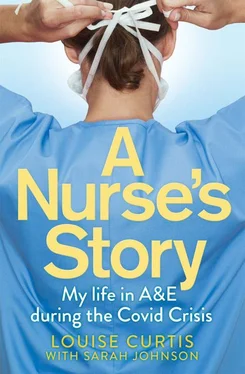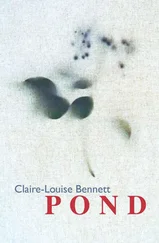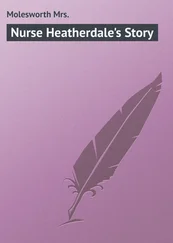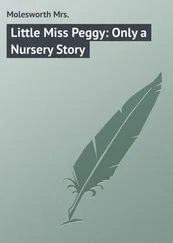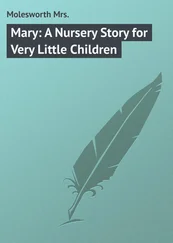‘Hey Louise, how’s your shift been?’
‘I feel terrible, Phoebe,’ I replied.
‘Why? What happened? Let’s talk it over.’
I told her about what had happened with Shirley and that she was now in intensive care fighting for her life.
‘I’m so scared I did something wrong. What if she dies and it’s all my fault?’
‘Oh my goodness, stop! You did the best you could and it sounds like you didn’t do anything wrong at all. Covid-19 is a new virus. No one knows exactly what they’re doing and if they say they do, they’re lying. The research around what to prescribe for patients is constantly changing.’
‘I just feel I’ve got imposter syndrome and that I’m not good enough to be doing this job.’
‘I can assure you that everyone gets waves of imposter syndrome at points in their career, even the most senior consultants. I get it all the time. You need to try and work through it and remember that patients are lucky to have you treating them, because you’re great at your job.’
‘Thanks, Phoebe, that’s really kind of you to say.’
‘Well, it’s true. Now get off home, it’s way past your finish time.’
Phoebe had made me feel better but, even so, that shift had shaken me to the core.
I am an advanced clinical practitioner (ACP) in A&E. When the coronavirus crisis took hold of the UK in March 2020, I’d been in the job for five months. I had worked as a nurse for eight years but, after three years of training, this new role saw me performing the job of a junior doctor for the first time. I’m definitely not a doctor because I didn’t go through medical school. ACPs can be nurses, physiotherapists, pharmacists, paramedics or occupational therapists by background, and can end up working at the same level as a middle-grade doctor. It’s a new and little-understood role in the NHS but we see patients, diagnose them and prescribe treatment. It’s a lot more responsibility than what I was used to and my actions and decisions can decide whether someone lives or dies.
I was still getting used to this daunting realization and just starting to feel a bit more settled in the role when the whole world changed, almost overnight it seemed. Life and everything around me suddenly started going at breakneck speed and I, along with everyone else working in healthcare, was running to catch up, both metaphorically and literally.
But first, let me take you back to where this particular journey began for me. It’s probably not where you would expect. I was determined to be the first female bishop in the UK when I left school to study theology at university. I had dreams of shaking up the male hierarchy in the church. But then, in my second year as a student, at the age of nineteen, I had a cycling accident that changed my perspective on what I wanted to do with my life.
I had decided to raise money for charity by cycling from Leeds to Paris. My best friend signed up with me and I thought it would be fun and worthwhile. As it was quite a long way, we did various training rides to build our stamina and endurance. One Sunday afternoon, I was pedalling along a country road in the Yorkshire countryside with the wind blowing in my face and my thoughts drifting off to I don’t know where, when I rode over a pothole. The jolt sent me flying over the handlebars. I remember thinking, ‘Oh no!’ mid-flight, before I crash-landed face first on the road.
Next thing I knew I was in the back of the ambulance; my best friend, who I’ve known since I was three years old, was with me but was so shocked she couldn’t remember my name, and the paramedics were making jokes about me ruining their morning cup of tea. They had dropped my teeth – the ones that had fallen out and that had been picked up off the road – in their stash of milk.
I arrived at the hospital. My head was taped down and all I could see was the ceiling. It was a very disturbing experience. I couldn’t look around me, and I could just hear all these voices shouting things before the pain took over and I blacked out.
My memories of that stay in hospital are grim. I was on a cocktail of painkillers that I now refuse to prescribe to anyone because they’re so awful. The only meaningful interaction I had with any of the staff was when the doctor asked me if I’d looked in the mirror yet. I said, ‘No.’ He said, ‘Good. Probably best not to.’
I stayed on a ward with mostly elderly patients for five days. I had broken both my elbows so moving wasn’t really much of an option. No one working on the ward took any notice of me. I can understand why now: I didn’t require much care because I was young and fit, so I was left. They brought me food, but because I’d broken my elbows I couldn’t lift it to my mouth so I didn’t eat. I would sit there, in a drugged-up state, vomiting because of the painkillers. I had sick all down my front but with no call bell I couldn’t tell anybody.
Then one day, they needed my bed so I was told to go. I was left in a hard chair by the hospital entrance while I waited for my parents to pick me up. Back at home I could hardly walk up the stairs. The pain was unbearable and I was left with a conviction that my stay in hospital had not been a good experience and that that was wrong. Surely care was meant to be better?
My memories of that time are foggy at best, but I remember my mother having to toilet me and wash me. She ran me a bath one night and put bubble bath in, which was so thoughtful and caring of her. The only thing was it was very oily so when it came to me trying to get out of the bath, I kept slipping. I couldn’t use my arms to lever myself up because they were broken and Mum couldn’t lift me either. I’m tall, like my father, and outgrew her in my early teens. I was so annoyed at her for using an oil-based bubble bath, and the whole experience was so embarrassing and painful. It didn’t take long to see the funny side though, and I started half crying, half laughing as my legs kept giving way beneath me as soapy water lapped around me. I eventually managed to get them underneath my body and carefully stood up out of the water and onto dry land. Now when I think about it, it’s really quite comical.
One thing that sticks clearly in my mind was one night when I woke up crying. I was so uncomfortable and my bed sheets were in a mess. I must have been making a lot of noise because my sister, who prides herself on her ability to sleep through almost anything, came in asking, ‘Are you OK?’ I wailed, ‘Everything hurts and I can’t get to sleep.’ She straightened up my sheets and I got back in and fell asleep within minutes.
That gesture really surprised me. It made me realize what had been lacking at the hospital. If my sister could do this, then why couldn’t professional nurses? I resolved to change things. I didn’t want other people to go through what I had experienced; I wanted better. So I applied to study nursing after I finished my degree in theology.
I was also a big fan of Grey’s Anatomy and thought I might meet my future ‘McDreamy’ husband at work. On that count, I was wrong. Although when I met my now husband Ed at university he was volunteering with St John Ambulance. He used to be on duty at gigs in the students’ union. I remember thinking ‘phwoar’ and that he was really cool because he got involved if anything medical kicked off and he got gig tickets for free (a very attractive bonus when I was living on a student budget).
When we were first introduced by a mutual friend I had to leave the room because I was so shy and embarrassed. ‘I’ve got something in my eye,’ I mumbled, and made a quick exit. Luckily we met again at a fancy dress party. I’d gone as a Christmas present, I remember, and with a couple of drinks inside me for Dutch courage I managed to actually talk to him this time when he came over.
Читать дальше
